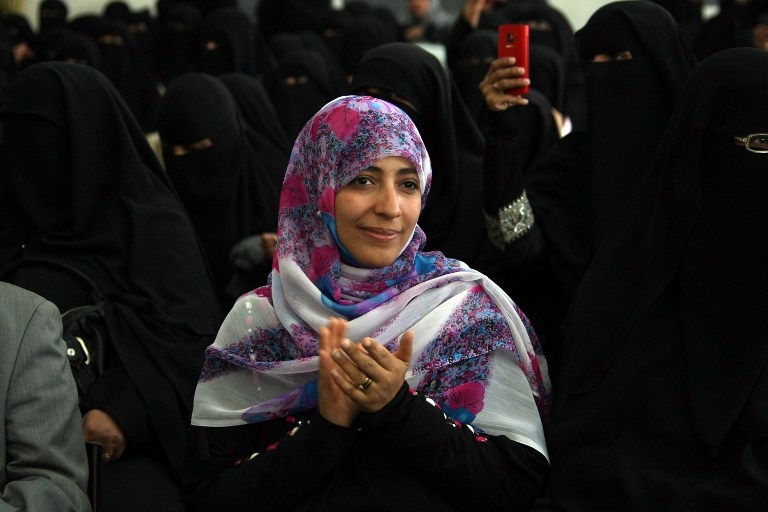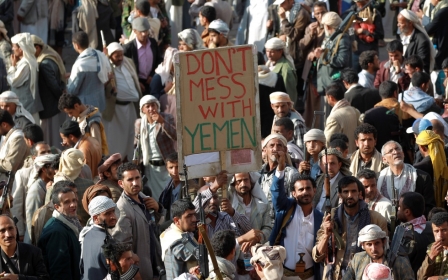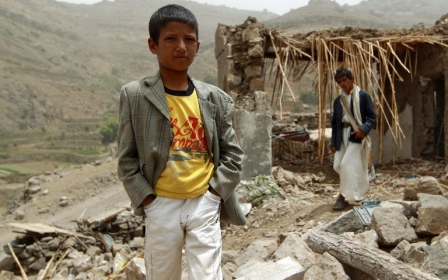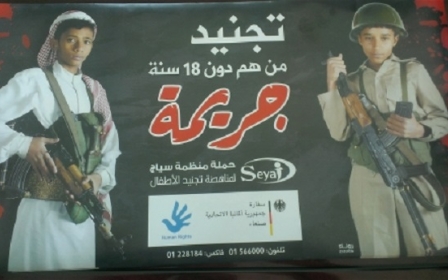Saudi-led bombing campaign deepens rifts in Yemen

AL MUKALLA, Yemen - A Saudi-led bombing campaign targeting Houthi militia in Yemen is deepening political rifts in the fractured country amid fears of a growing humanitarian crisis and civil war that could pull in other countries in the region.
For two weeks, the world’s attention has been fixed on the efforts of Saudi Arabia and nine other Arab states to dislodge Houthi militiamen who in January toppled the government of president Abd Rabbuh Mansour Hadi.
But tensions between the Houthis and al-Islah, Yemen’s most prominent Islamist party, are being stoked by the airstrikes and putting strain on the country’s already fragile social fabric, analysts say.
Soon after Saudi fighter jets began strafing Houthi positions and critical infrastructure across Yemen last month, the leadership of Islah, a predominantly Sunni party which took part in the 2011 uprising against former president Ali Abdullah Saleh, announced their support for the campaign.
Last week, Tawakkol Karman, winner of the 2011 Nobel Peace Prize and a leading figure in Islah, flew to Riyadh to meet with president Hadi and declare her support for the Arab coalition.
The Houthis have responded by cracking down on Islah, storming their offices and rounding up politicians.
Two hundred and sixty-three members of Islah have been arrested in the capital and other cities in the last two weeks, according to Islah spokesman Abdul Malik Shamsan.
A resident in the capital who spoke on condition of anonymity because of fear of reprisal told MEE that several of the muezzin (prayer callers) in his neighbourhood had been arrested and replaced by preachers sympathetic to the Houthis.
For years Islah, the country’s largest and best organised opposition group, played a double game in Yemeni politics, sustaining close ties to the government of president Saleh while also building up a network of supporters to defeat him.
In 2004, Ali Mohsin Al-Ahmar, an army general loyal to Islah, led a six-year government campaign against the Houthis which saw hundreds of thousands of Yemenis displaced and Saudi Arabia send fighter jets across the border to bomb Houthi positions in their northern stronghold of Saada.
Islah gained seats in parliament and several ministries in the transitional government in 2012 as part of a Saudi-backed deal that saw Saleh resign after mass protests in exchange for immunity.
Houthi spokespersons did not respond to questions about the recent arrests of Islah members, but a pro-Houthi activist in Sanaa, Hossein al-Bokheiti, said the crackdown had been precipitated by Islah figures attempting to “destabilise the country”.
“If someone inside the country is supporting a war against the Yemeni people, they are not your political opponents, they are enemies of the country,” Al-Bokheiti said. “The actions the Houthis have taken are normal steps for any country in the world.”
Shamsan, the Islah spokesman, said he had no information on the whereabouts of the incarcerated members and had not been in contact with the Houthis with whom Islah severed ties in January.
“The socialist party is mediating to secure their release,” Shamsan said. “The Houthis are acting as if they are beyond the law and the constitution.”
Pre-emptive step
Last summer, with the transition in Yemen stalling, the Houthis, a predominantly Zaydi Shiite group from Yemen’s north, called for an uprising against Hadi’s government, citing fuel hikes and corruption allegations.
After sweeping into the capital in September and seizing government buildings, militiamen loyal to the Houthis engaged in bloody skirmishes with Islah supporters, storming an Islah-run university in the capital and forcing some senior members of the party to seek refuge in Saudi Arabia, Qatar and Turkey.
Islah claim that former president Saleh is using the Houthis to retaliate for their role in overthrowing his government during the mass uprising of 2011.
During the early days of the uprising, powerful businessmen linked to Islah such as Hamed al-Ahmer, a telecommunication and oil tycoon, and his brother Saqeq al-Ahmer, a tribal leader, threw their weight behind anti-regime protests.
Shamsan dismissed suggestions that supporting the Saudi-led campaign, which has resulted in the death of over 500 civilians, might damage Islah’s standing in Yemen.
“Many people in Yemen support the airstrikes but are hiding their feelings because of fear of reprisal by the Houthis,” he said.
“If the airstrikes did not occur now, we would have begged for them in future because of Saleh and Houthis’ power-grabbing,” said Shamsan, adding that his party would not take up arms to defend itself against the Houthis.
In supporting the airstrikes, analysts say, Islah is seeking to preserve itself as the Houthis move swiftly to eliminate their political opponents.
“The Houthis see Islah as an obstacle,” Najjeb Ghallab, a political analyst, told MEE from Riyadh. “Islah was obliged to back the strikes to save its neck... Its extermination [by the Houthis] was a matter of time even if it did not support the strikes.”
New MEE newsletter: Jerusalem Dispatch
Sign up to get the latest insights and analysis on Israel-Palestine, alongside Turkey Unpacked and other MEE newsletters
Middle East Eye delivers independent and unrivalled coverage and analysis of the Middle East, North Africa and beyond. To learn more about republishing this content and the associated fees, please fill out this form. More about MEE can be found here.




